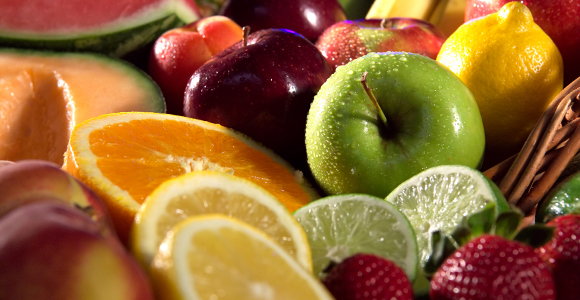With the abundance of disease-fighting dietary options provided by nature, it is impossible to pick only five specific foods on which to focus. How unfair that would be to not include the hundreds of other nutritional superstars! To best simplify what an enormous list that would be, check out the following five categories that encompass an array of fantastic foods. Variety is essential! According to Dr. Fuhrman in his book Eat to Live, eating the bulk of your diet from these five groups of foods can help reduce your risk of many typical diet-related illnesses including: heart disease, cancer, type II diabetes, stroke, arthritis, osteoporosis, gout, asthma, fibromyalgia and irritable bowel syndrome.
1. Vegetables
Of course these are number one on the list! Vegetables should make up a huge part of your diet and can virtually be eaten in unlimited quantities. There are no bad ones so be sure to incorporate a wide variety so that you can benefit from their extensive range of vitamins and minerals. Plant foods are rich in phytochemicals which research indicates are powerful cancer inhibitors. Leafy greens such as kale and collards in particular are the most nutrient-dense food you can eat. This means that you get the maximum amount of nutrition for the least amount of calories. Eat a rainbow: go for red radishes, orange sweet potatoes, yellow onions, green broccoli and purple eggplant, just to name a few. If you're unsure of how to prepare these items, do a quick search online--sometimes the best preparation is to simply serve it raw!
2. Fruits
Just like with the veggies, there are no bad fruits. Out of all the food choices available, fruits (and vegetables) are the two foods that have the greatest correlation with longevity. Eat a broad assortment of fruits for their incredible disease-fighting nutrients and to help satisfy your sweet cravings. And yes, they do contain naturally-occurring sugar but this is very different from the refined sugar that is found in soda, candy and baked goods. The sugar from fruits is packaged just as nature intended, alongside plenty of vitamins, antioxidants, and fiber so you can feel good about indulging in fruit regularly. Shoot for at least three per day.
3. Beans and Legumes
Full of heart-healthy fiber, beans and legumes are great sources of protein and help keep you feeling full. They aid in maintaining healthy blood sugar levels and have been associated with lowering the risk of cancer and obesity. Garbanzo beans, lentils, black beans, split peas and kidney beans are a few examples in this category to try. Top your salad with a handful or puree up some as a dip for veggies! Dr. Fuhrman recommends at least a cup per day.
4. Whole Grains
While eating highly-processed grains can contribute to obesity and diabetes, consuming whole grains can help keep you lean and healthy. These should not be eaten in unlimited quantities as they are not as nutrient-rich as fruits and vegetables. However, they do provide an excellent source of energy with more nutrition than refined grains. Try oats, quinoa, amaranth or teff and leave the breads, cookies, crackers, rolls, and cakes made with "enriched wheat flour" on the shelves.
5. Nuts and Seeds
Packed with healthy fats that are linked with reduced rates of cancer and heart disease, nuts and seeds are foods you want to include in your daily diet for superior health. Because they are rich in fat and calories, an ounce or two per day is all you need. Go for for raw rather than roasted/salted to maximize their nutritional benefits. Try tahini (sesame seed butter) or nut butters such as almond or cashew for a little something different.
Remember, disease is easier to prevent than to treat. The key to preventing disease is to choose your foods consciously and wisely. Avoid empty-calorie foods deficient in nutrients and fiber. Opt for the above choices which have the highest nutrient per calorie ratio, and as Dr. Fuhrman says, Eat to live!
Corinne Goff is a Registered Dietitian who is absolutely passionate about food, health, and nutrition. Corinne has a BA in Psychology from Salve Regina University and a BS in Nutrition from the University of Rhode Island. As a nutritionist, her objective is to help people reach their health goals by offering a personalized holistic approach to wellness that incorporates natural foods and lifestyle changes. She works together with her clients to develop daily improvements that they feel comfortable with and that are realistic. She believes that the focus on wholesome, nutrient-rich, real food, is the greatest possible way to become healthier, have more energy, decrease chances of chronic disease, and feel your best.



